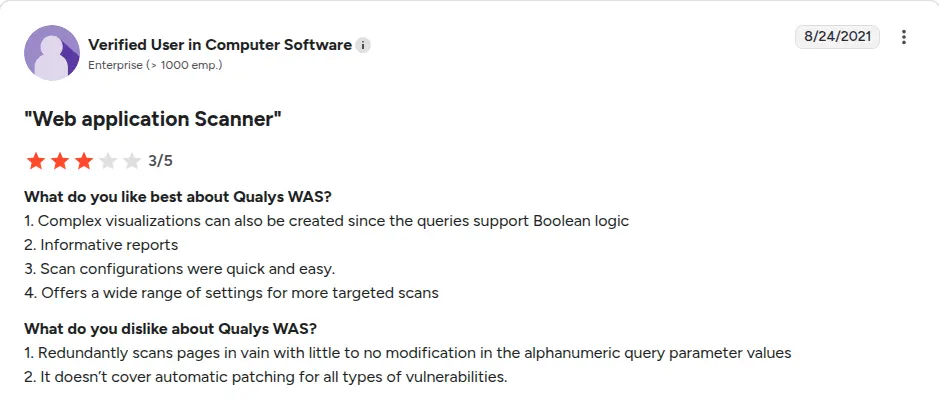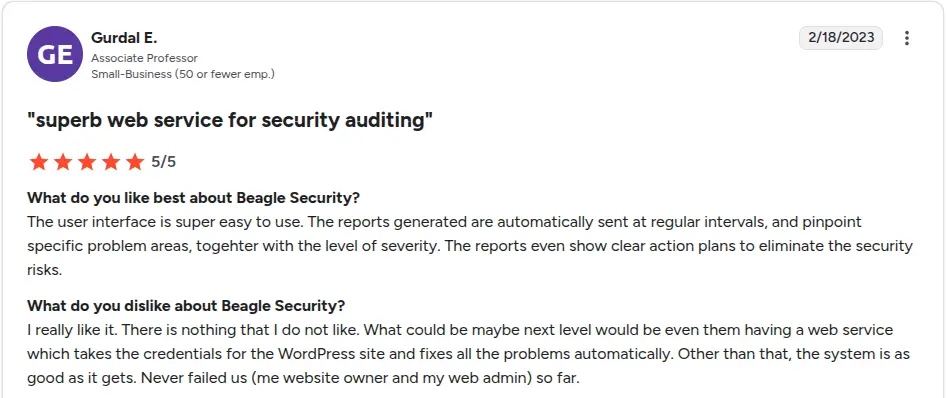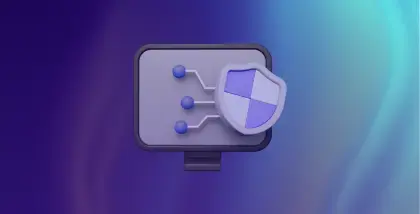![Tenable vs Qualys vs Rapid7: Which is the best choice for you? [2025] Tenable vs Qualys vs Rapid7: Which is the best choice for you? [2025]](/blog/images/tenable-vs-qualys-vs-rapid7.webp)
Organizations are constantly seeking the best tools to identify, prioritize and remediate security weaknesses before they can be exploited. Among the leading contenders in this arena are Tenable, Qualys and Rapid7, each offering comprehensive solutions with unique strengths.
Both of them are trusted names in cybersecurity, often securing their place in the shortlist for enterprises and mid-market teams alike.
But the real question is, do they truly align with your current needs?
To find out, here’s a blog breaking down the differences between them to help you understand how their features, performance and usability fits your organization in the right way.
Tenable vs Qualys vs Rapid7 at a glance
| Features | Tenable | Qualys | Rapid7 |
|---|---|---|---|
| Main features | Dynamic Application Security Testing (DAST) | Dynamic Application Security Testing (DAST) | Vulnerability management, exploit testing |
| AI features | Not adopted | Not adopted | Not adopted |
| Ease of use | Moderate | Easy to use | Moderate |
| Free trial | Yes | Yes | Yes |
| Pricing range | $3,500/year (100 assets) | Custom quote | Custom quote |
| G2 rating | 4.5/5 | 4.3/5 | 4.3/5 |
| Gartner Peer Insights rating | 4.6/5 | 4.4/5 | 4.3/5 |
An alternative web & API penetration testing platform for comparison: Beagle Security
Beagle Security stands out as a modern, developer-friendly alternative built specifically for dynamic web applications and APIs. Its intuitive interface and fast onboarding make it easy for teams of all sizes to start testing without holding deep security expertise.
Beagle Security comes with realistic attack simulations, unlike traditional tools that need complicated setup or adjustment. These AI-powered tests adjust to the activity of your website or API to provide depth without producing false positives.
Reports that combine practical insights with technical clarity are written for both engineers and business stakeholders. This reduces dependency on security teams and accelerates remediation timelines. This reduces dependency on security teams and accelerates remediation timelines.
Beagle Security also integrates smoothly with CI/CD pipelines, making it a strong fit for modern DevSecOps workflows. Beagle Security is undoubtedly a compelling alternative worth considering if you’re looking for focused, efficient, and automated security testing.
Why Beagle Security might be a better fit
- No learning curve
Beagle Security is designed for immediate usability with no complex setup or training required. Security teams can launch tests within minutes, saving their valuable time.
Contextual reports Beagle Security provides human-readable, actionable insights tailored for both developers and decision-makers to quickly address issues.
No target lock-in Unlike Tenable and Qualys, Beagle Security allows unlimited flexibility. Test any number of web apps or APIs without being restricted to predefined targets.
AI capabilities built-in Uses AI to simulate real-world attack logic, handle business logic authentication, select test cases intelligently, and reduce false positives automatically.
Most affordable pricing Beagle Security delivers enterprise-grade security testing starting at under $119 per month which is ideal for both in-house security teams and MSSPs looking for cost-effective tools.
Tenable vs Qualys vs Rapid7 vs Beagle Security: Feature comparison
| Features | Tenable | Qualys | Rapid7 | Beagle Security |
|---|---|---|---|---|
| AI login & session handling | No | No | No | Yes |
| Real penetration simulation | No | No | via Metasploit separately | Yes |
| Custom API testing | Limited | Moderate | Limited | Yes |
| False positive filtering | No | No | Manual review | Yes |
| Contextual reports | Basic | Technical | Risk focused and technical | Yes |
Tenable web application scanning features
As an integral component of the Tenable.io platform, Tenable WAS provides continuous visibility into the web application attack surface. Its hallmark capabilities include:
Key features:
Automated Dynamic Application Security Testing (DAST)
API Scanning
DevSecOps Integration
Vulnerability Intelligence
Advanced Reporting
Tenable One Exposure Management Platform is the larger component that includes Tenable Web Application Scanning. Tenable is unique because of its risk-based methodology, which ranks vulnerabilities according to threat intelligence, asset criticality and exploitability.
The platform is driven by the Nessus scanning engine so it can find vulnerabilities with high accuracy, particularly for classic infrastructure components. It lacks advanced web-specific features like context-aware reporting and dynamic AI-based business logic testing but it does provide some basic scanning capabilities. This could be a limitation for modern DevSecOps teams using GraphQL and CI/CD pipelines.
On the plus side, Tenable does offer 24/7 access to its training portal and a vibrant user forum.
Tenable WAS is therefore more appropriate for companies who have already invested in the Tenable ecosystem and wish to incorporate basic WAS capabilities into a broader vulnerability management plan than as a standalone, modern DAST solution.
Tenable WAS may not be as agile or granular as mid-sized businesses or MSSPs seeking highly customized, developer-friendly penetration testing.
Qualys web application scanning features
Key features:
TruRisk™ prioritization engine
Integration with CI/CD tools
Web Application Firewall (WAF) virtual patching support
Asset inventory and discovery
Similar to Tenable, Qualys Web Application Scanning (WAS) is a component of Qualys VMDR, a broader platform. Even in complicated digital contexts, it is intended to assist enterprises in automatically identifying their web assets, continuously monitoring them for vulnerabilities, and producing reports that satisfy compliance standards.
Qualys’ powerful TruRiskTM rating engine, which rates vulnerabilities based on their severity and exploitability, allows security teams to focus on what actually matters.
Users frequently complain about the platform’s steep learning curve, lengthier scan times, and greater false positive rates when compared to more developer-centric technologies, even though it scales effectively across large companies and regulatory settings.
Rapid7 features
Key features:
InsightAppSec with DAST scanning
Scheduled scanning and scan blackouts
Risk scoring and vulnerability tracking
Visual dashboards and customizable reporting
CI/CD integrations
Compliance focused reports
Rapid7’s application security offering is built around InsightAppSec, which emphasizes dynamic testing and combines seamlessly with InsightVM to provide a more comprehensive security perspective.
Unlike alternatives with multiple overlapping features, Rapid7 simplifies user access with a single Insight platform. Its relationship with Metasploit is what makes it special and allows teams to evaluate real-world exploitability, even though it requires manual engagement and a deeper grasp of security.
Although developers may like the CI/CD interfaces, the platform continues to prioritize security team protocols. It offers decent support for modern web app designs but lacks true AI-driven automation.
While compliance assistance is available, it is not as automatic or comprehensive as competitors such as Beagle Security.
Beagle Security features
AI-powered penetration testing engine
Support for private and GraphQL APIs
Contextual, compliance-ready reports
CI/CD integration for shift-left security
Automation with flexibility
Real-world penetration testing simulations
Easy onboarding and intuitive UX
Business logic testing and login flow
Tenable vs Qualys vs Rapid7 vs Beagle Security: Pricing comparison
| Platform | Starting price | Free trial |
|---|---|---|
| Tenable | $7,434/5 FQDNs | 30 day free trial |
| Qualys | Custom quote | 30 day free trial |
| Rapid7 | $175/month for 1 app | 30 day free trial |
| Beagle Security | Self-serve plans start at $1188/year. Self-serve plans start at $1188/year Enterprise plans start at $8500/year for 5 concurrent tests Enterprise plans start at $8500/year for 5 concurrent tests | 14 day free trial |
Tenable pricing
Tenable Web Application Scanning, starting at $7,434 per year for 5 FQDNs, is positioned as a scalable, enterprise-ready solution within the broader Tenable One platform.
Pricing is based on FQDN, offered in fixed bundles, requiring additional contracts if you need to scale beyond standard limits.
While Tenable does provide a free trial, it’s often limited in functionality and gated behind registration, making it less convenient for thorough hands-on evaluation.
Qualys pricing
The cost is based on how many modules and apps you want to scan. For majority of use cases , it employs a per-target cost basis, which can rise rapidly in dynamic environments.
Due to its frequent bundling with other Qualys products, Qualys makes solo web scanning less accessible.
Rapid7 pricing
Rapid7 publishes pricing for Insight AppSec that starts at $175 per month for a single application. For business firms that receive a large number of applications, the annual cost rises significantly.
This makes it one of the most expensive solutions for teams with multiple assets. Teams that are primarily focused on application and API security may not need it, but companies that are currently using other Rapid7 solutions may find it useful.
Beagle Security pricing
Beagle Security is refreshingly transparent. Pricing is based on features and usage, not arbitrary target limits. It offers annual and monthly plans with MSSP-friendly models. Most importantly, you can try it for free before actually choosing.
Even at lower tiers, you get access to core features including AI automation, business logic testing, and CI/CD integration, making it one of the most cost-effective platforms for proactive security testing.
Tenable vs Qualys vs Rapid7 vs Beagle Security: Customer reviews comparison
| Criteria | Tenable | Qualys | Rapid7 | Beagle Security |
|---|---|---|---|---|
| Ease of use | 89% | 82% | 88% | 95% |
| Ease of setup | 87% | 81% | 88% | 96% |
| Ease of admin | 87% | 86% | 90% | 93% |
| Quality of support | 84% | 81% | 80% | 97% |
| G2 ratings | 4.5/5 | 4.3/5 | 4.3/5 | 4.7/5 |
As of latest G2 comparison in June 2025
Tenable reviews

Source: Gartner Peer Insights
Tenable is rated 4.6 on Gartner Peer Insights. The platform supports software architecture during upgrades, but has noticeable usability issues. Archiving is weak, logins don’t stay persistent, and assets must be updated one by one. Reporting also lacks flexibility.
Qualys reviews

Qualys earns a solid 4.4/5 rating, with users highlighting its strong asset visibility, integrated vulnerability management, and TruRisk™-based prioritization.
According to one user the tool supports complex visualizations with Boolean query logic, making it suitable for advanced users. However, it tends to scan pages redundantly and lacks automatic patching for all vulnerability types.
Rapid7 reviews

Source: G2
Its rated 4.3 on G2. While users appreciate the platform’s strong visualization features and seamless integration with other Rapid7 tools, many point out challenges such as a steep learning curve, inconsistent scan performance and limited context-aware remediation guidance.
Beagle Security reviews
Beagle Security is often recognized for its developer-friendly reports, realistic attack simulations, and intuitive user interface. Users value the platform’s AI-driven testing, which appears tailored rather than generic, and its ability to balance ease and complexity.
Onboarding is straightforward, and it just takes a few clicks to begin a test, even for teams with little to no security expertise.
Reports are written to provide both technical clarity and business relevance because of which engineering teams can act more quickly without waiting for security experts.

Source: G2
Tenable vs Qualys vs Rapid7 vs Beagle Security: Which is best for you?
Choose Tenable if:
You focus on infrastructure and network security.
You need broad exposure management across assets, cloud, and OT.
You have a dedicated team to manage complex configurations.
Choose Qualys if:
You need an all-in-one, cloud-native security platform.
Your dev team adjusts with outdated, clunky UI and frustrating false positives.
You can manage inconsistent support and difficult third-party integrations.
Choose Rapid7 if:
You value strong integration with SIEM, cloud, and EDR tools like InsightIDR and InsightCloudSec.
You need proactive threat detection, prioritization, and automation built into your vulnerability management process.
You’re looking for responsive customer support and a solution that’s easy to deploy and scale across hybrid environments.
Choose Beagle Security if:
You value AI-driven testing, actionable remediation, and CI/CD-friendly integration.
You want real-world attack simulations without dealing with complicated setup or tuning.
You’re done with target lock-ins and overpriced FQDN-based plans.
You test modern web apps, APIs, GraphQL, and apps with dynamic login flows.
You need enterprise-grade testing without the complexity or premium pricing.
Try Beagle Security for free to see how it compares to Tenable, Qualys, and Rapid7
If you’re evaluating tools like Tenable, Qualys or even Rapid7 for web and API security, give Beagle Security a try, especially if simplicity, speed and clarity matter to you.
Beagle Security is built for modern teams, with automated, AI-driven penetration tests, developer-friendly reports and seamless CI/CD integration. Unlike legacy-heavy platforms, it doesn’t overwhelm you with noise or require deep security expertise to get started.
Whether you’re a fast-moving startup or a growing enterprise, Beagle Secuirty helps you shift security left without slowing down development.
You can start a 14-day free trial or schedule a demo to get started with the Beagle Security platform.



![Acunetix vs Nessus: Which is right for you? [2026] Acunetix vs Nessus: Which is right for you? [2026]](/blog/images/acunetix-vs-nessus-which-is-right-for-you-2026-cover.webp)
![OpenVAS vs Nessus: Which is the best choice for you? [2025] OpenVAS vs Nessus: Which is the best choice for you? [2025]](/blog/images/openvas-vs-nessus-which-is-the-best-choice-for-you-2025-cover.webp)


![Top enterprise application security tools [2026] Top enterprise application security tools [2026]](/blog/images/blog-banner-four-cover.webp)
![Top vendor application security testing tools [2026] Top vendor application security testing tools [2026]](/blog/images/blog-banner-six-cover.webp)
![Best API security tool for developers [2026] Best API security tool for developers [2026]](/blog/images/blog-banner-five-cover.webp)

![Top Bright Security alternatives [2026] Top Bright Security alternatives [2026]](/blog/images/blog-banner-one-cover.webp)